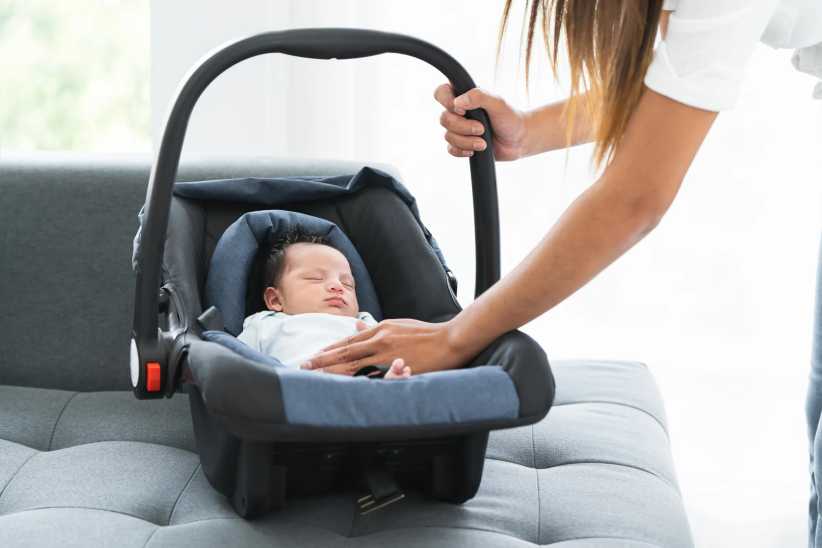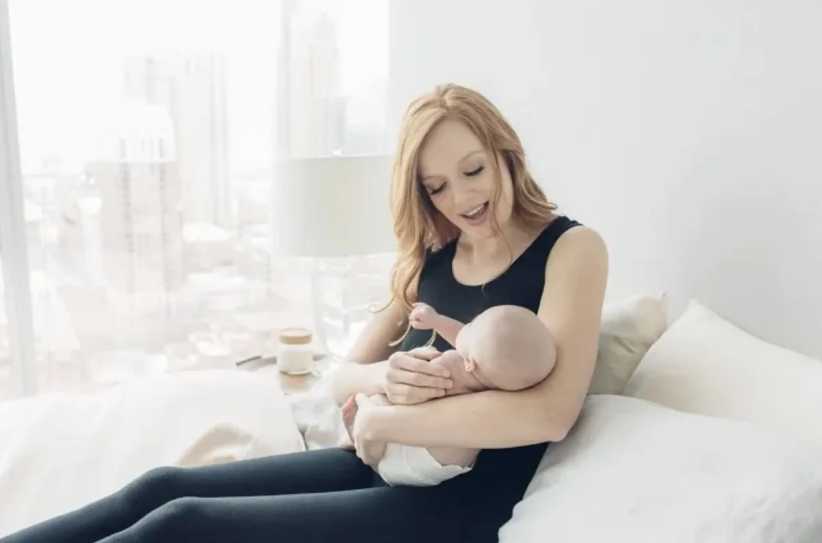 Preschool is a child’s first formal introduction to city life—or at least to the not-so-harsh-but-still-
Preschool is a child’s first formal introduction to city life—or at least to the not-so-harsh-but-still-
There are so many parenting books out there already. What makes yours stand out?
Nancy Schulman: A lot of parenting books deal with babies, toddlers, and every other age, but nothing really deals with just preschool-age children, particularly from the perspective of educators as opposed to psychologists or pediatricians or parents. We’ve seen thousands of children through the years and have observed thousands of parents interacting with children. And we’ve seen how that relationship impacts the life of a child both in and outside the classroom.
What was it like writing the book together?
NS: We loved it. It was not the kind of thing where we each wrote our separate chapters. We literally sat at the computer with one of us typing and the other talking. Because our personal and professional lives are so intersected and we think very similarly, it just flowed.
Ellen Birnbaum: Philosophically, there was this base, this set of core beliefs, that we could refer to. What we believe is that from the time we started teaching, the lives of children have changed. The intensity and the pressure on parents have changed. We’re interested in talking about slowing down and focusing on getting back to the basic things that children need.
When did you first notice this change, and how would you describe it?
EB: I’d say in the last 10 years, we’ve gradually seen a tremendous change. There seems to be a lot more anxiety around raising children the so-called “right way.”
NS: It’s the idea that if you don’t give your children every right advantage at an early age that somehow they are going to be missing the boat for success. That has created a feeling of ‘Oh my gosh, if they don’t take this class or get into that school their life is going to go off track.’ And that makes parents very fearful about making a mistake. What we’ve seen are parents who feel less and less confident in their own abilities to make decisions that, instinctually, they want to make.
You offer two ground rules to raising kids: love them unconditionally and set limits. Do you feel like parents aren’t setting enough limits?
EB: Absolutely.
NS: People don’t want their children to be unhappy, and when you say ‘no’ to a child, obviously that makes him or her unhappy. It’s this fear that everything has to be wonderful all the time, or the idea that quality time has to be a time in which children are allowed to do whatever they want. Parents are negotiating and letting go of their authority, and as a result the children are confused, because they don’t have a sense of where the boundaries are.
EB: What teachers are seeing is that children are so much less resilient. Because parents are avoiding conflict, their children don’t build frustration tolerance, and they are more likely to cry and fall apart when things don’t happen according to what they want and expect. That makes school life very difficult for them. It makes it difficult for teachers. It’s a huge trend.
As teachers, you say that you can tell when a child is overscheduled by the way she behaves in the classroom. What are the signs?
NS: Sometimes the child has trouble figuring out what to do. He’ll be in a classroom full of children, teachers and exciting things, and he’ll look around and say, ‘I don’t know what to do,’ because these children have been so programmed that they really don’t know how to be inventive.
EB: Sometimes they don’t make good connections because they have so many people instructing them — they don’t form the same kind of attachment to the classroom teacher.
NS: And they can be preoccupied. They are thinking, ‘It’s a Tuesday, what am I doing on Tuesday? It’s Wednesday, what am I doing on Wednesday?’ Instead of being in the moment. They also often look very fatigued. Their energy is depleted by the end of the week and by the end of the each day, and they just have trouble focusing.
Do you recommend a certain amount of activities per week?
EB: For a 3-year-old, one activity a week outside of school and play dates, and for a 4-year-old, two activities. But it also depends on what the activity is. Some activities are more stressful, because they are performance driven, so the child is waiting in line and getting instructions, but there are other activities that are more open ended. And it’s very important to remember you don’t always need an activity. Parents have given up the idea that they also can instruct and have fun with their kids rather than go to a professional. Play is really important for young children. I think it’s so helpful for parents to draw from their own experiences as children. Think about when you were a child, what do you remember? What made you the most happy?
NS: And if you ask a child what makes you happy, she’s not going to tell you the trip to Disneyland or the big things; she’s going to say when Mommy reads to me at night, or when I go to the park with Daddy. Small intimate moments, real time spent together, is the thing that children are really craving and what really makes them feel happy and secure.
What role do you think a caretaker or nanny should play when it comes to raising children, especially when it comes to discipline?
EB: We just had a breakfast for nannies and caretakers at the end of the year at the 92nd Street Y, and they felt so good about being acknowledged. They really are on the front lines, and many parents are relying on them. They must discipline children, and it’s essential that the responsibility is with them and supported by the parents. But the parents have to have a conversation about what their beliefs are so that the caretaker is not just on his or her own.
NS: I think that the most important thing for both the parents and child is consistency. If the parent is responding to a child in a particular way that is not consistent with the way the caregiver is, the child is getting a very confusing message and ultimately doesn’t know how to behave. One thing that caregivers often say is that the parents may overrule something they say in front of the child, and that totally undermines their authority.
In today’s state of competitive school admissions, it’s easy to get so caught up in the process that you lose sight of what actually makes a good nursery school experience. What do you think parents should look for?
NS: The most important thing is looking at the quality of the experience of the school’s teachers and director. And that the school has a philosophy that is consistent with what you believe is right for your child. One thing about early childhood programs that we find really compelling is that this time is really the only time in a child’s life where the family and the school are completely working together on behalf of the child. So if you don’t feel good about the message of the school, you are going to be crossing purposes when it comes to early development.
I noticed that in your book, in your chapter about classroom activities, you spend a lot of time discussing art. Why are you so passionate about this subject?
EB: That’s one of our favorite parts of the whole book. It’s who children are. It’s not just a project where they are learning a certain skill to create something. It’s really coming from inside them. It’s their ideas, their thoughts, their execution, their experimentation. That’s why the idea of talking to your children about it in an appropriate way is so important. To respect the work and the child, to not make judgments or determinations about what or why it is.
What are your thoughts on the twos programs? Do you think they are a good idea?
NS: If you’ve never left your child by the time he or she is 2-years-old and you are reluctant to do so, and he or she gets very distressed when you leave, it’s better for that child to wait until age 3 to start. We really believe that every 3-year-old should be in an early childhood program, because there are tremendous benefits to that, but up to then it’s definitely something that parents should feel like they can make a choice about depending on the needs of their family.
In a city in where there is so much affluence, how can parents keep their kids grounded? Is that a challenge you see parents struggling with?
NS: It’s about making choices as a parent. You don’t need to have everything: parents make choices about birthday parties and how to handle gift giving by choosing to engage their children in helping types of behaviors at home and elsewhere. If you are even thinking about these issues, it’s likely you will make choices to help your children think about the world around them. Now, as a 3-year-old that’s a very hard thing to do, because children are so self-absorbed and self-centered at that age, but at 4 and 5 years of age they can think about it — whether it’s making a card for grandparents or making a phone call. Complimenting a child when he or she performs an act of kindness is the first stage of building that kind of empathy, even in a way that’s inadvertent; for example, saying, ‘I really liked the way you helped your sister with that.’ Commenting on it as a parent makes your child feel good. It should feel good to do good — that’s what you want to encourage.
Do you have any favorite memories or anecdotes about your experiences in the classroom with nursery school students?
EB: There are so many that it’s hard to pick just one. There is a story in the book about some students who had been growing butterflies from larva at school, and at the end they took them to the playground to set them free. And one of the students said to me, ‘We’re just like the butterflies. When we came here we were little, then we got bigger, and now it’s time for us to go.’ Things like that happen all the time.
Did you find that writing this book allowed you to revisit your own experiences as parents?
NS: The most pleasurable thing in writing this book was being able to take ourselves back to our children at this age. It’s probably the one time in your life as a family that really stands out in your memory — the elementary years blend together, college goes in two seconds, but this stage in your life is so hands-on and so everyday. You are involved with your children in that way stands out as the most fun, the most important. We wouldn’t have been working in this field for so long if we weren’t so passionate about this age in the life of a family.
EB: You say sometimes that it seems to last forever, but it goes in the blink of an eye.













